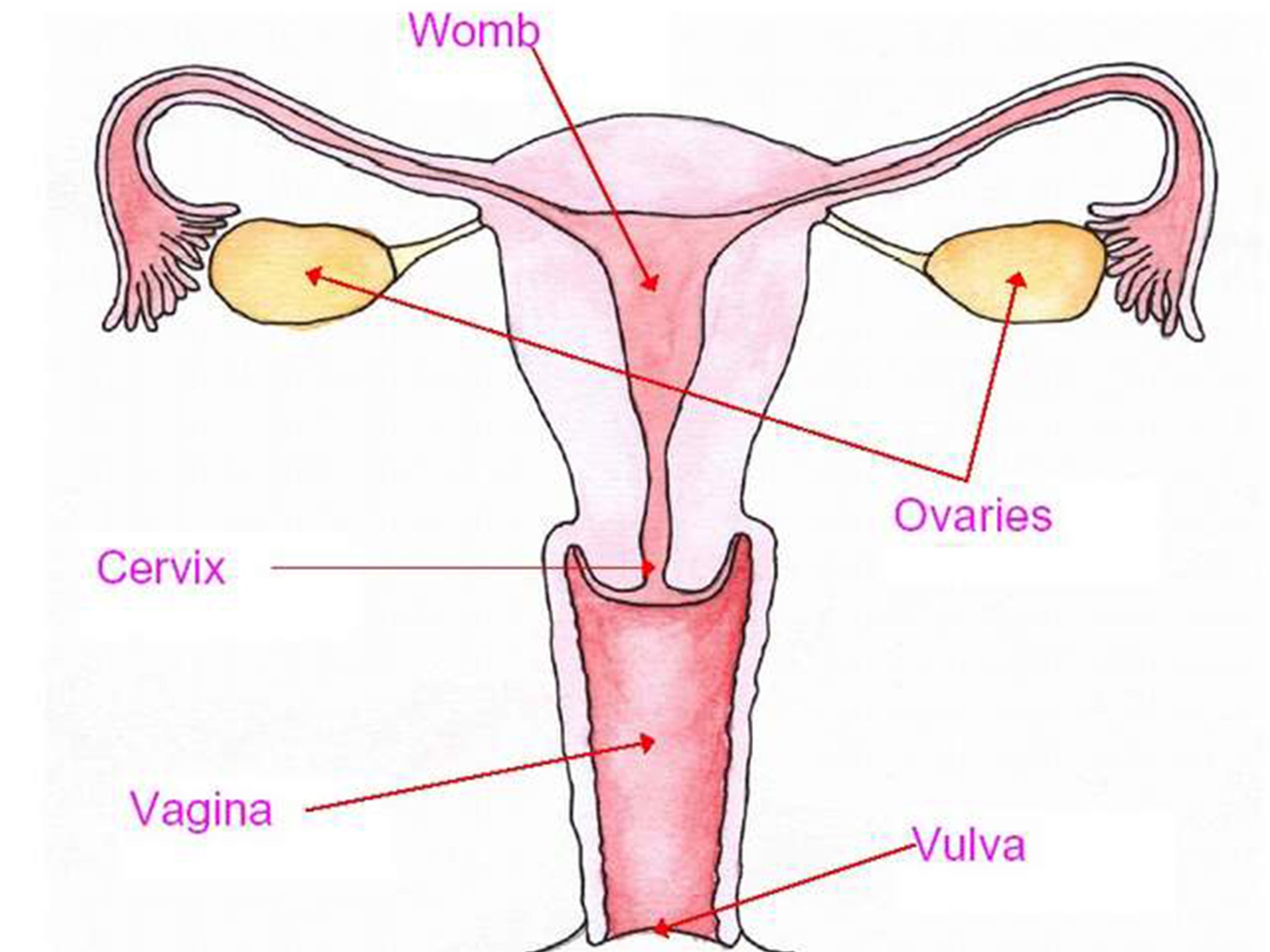Half of young women unable to ‘locate vagina’ and 65% find it difficult to say the word
Research for gynaecological cancer awareness month shows worrying face of women’s knowledge of diseases’ warning signs

Your support helps us to tell the story
From reproductive rights to climate change to Big Tech, The Independent is on the ground when the story is developing. Whether it's investigating the financials of Elon Musk's pro-Trump PAC or producing our latest documentary, 'The A Word', which shines a light on the American women fighting for reproductive rights, we know how important it is to parse out the facts from the messaging.
At such a critical moment in US history, we need reporters on the ground. Your donation allows us to keep sending journalists to speak to both sides of the story.
The Independent is trusted by Americans across the entire political spectrum. And unlike many other quality news outlets, we choose not to lock Americans out of our reporting and analysis with paywalls. We believe quality journalism should be available to everyone, paid for by those who can afford it.
Your support makes all the difference.Half of young women are unable to properly label a vagina on a medical diagram, while 65 per cent have admitted they have a problem simply using the words vagina or vulva.
As Gynaecological cancer awareness month kicks off, research by the Eve Appeal unearths worrying information about young women’s awareness of their own bodies and the potential warning signs of the five cancers that can affect the womb, ovaries, vulva, vagina, and cervix.
Only half of the 1,000 women surveyed between the ages of 26 and 35 were able to label the vagina accurately, whereas women age between 66 and 75 scored far better; eight in 10 were able to able ovaries and nine in 10 could label the womb.
Of the youngest women surveyed, one in five aged between 16 and 26 were unable to name a single correct symptom of any of the five gynaecological cancers, while nearly 40 per cent of this age group said they used codes names to discuss any issues, referring to “lady parts” or “women’s bits” instead of using the term vagina.
The issue of feeling embarrassment around gynaecological issues have also been found to hinder women from seeking help with doctors. More than one in 10 women aged 16 to 35 said they find it difficult to discuss gynaecological issues with their GP, an nearly a third said they had completely avoided visiting a doctor when they’ve had an issue due to feeling embarrassed.
“We know our own bodies and if something is happing that isn’t normal for a person, then tehy just need to get it checked out; it doesn’t mean it’s going to be anything bad, but it just needs checking,” a spokesperson for the charity said.
The Eve Appeal said that more than 20 per cent of women don’t attend a Smear when invited by their GP, and that the number of people having the screening is declining, despite the awareness created by Jade Goody before her death.
Helena Morrissey, chairman of the charity, said: “At the Eve Appeal we know how important it is to promote straight talking about the signs and symptoms of gynaecological cancers to women of all ages, and this survey has highlighted just how far we still have to go to make this happen.
“These cancers have some of the worst outcomes for women, with a 40% mortality rate. Understanding the symptoms will save lives, which is why we are urging women this Gynaecological Cancer Awareness Month to talk more openly about these life-saving issues.”
Join our commenting forum
Join thought-provoking conversations, follow other Independent readers and see their replies
Comments